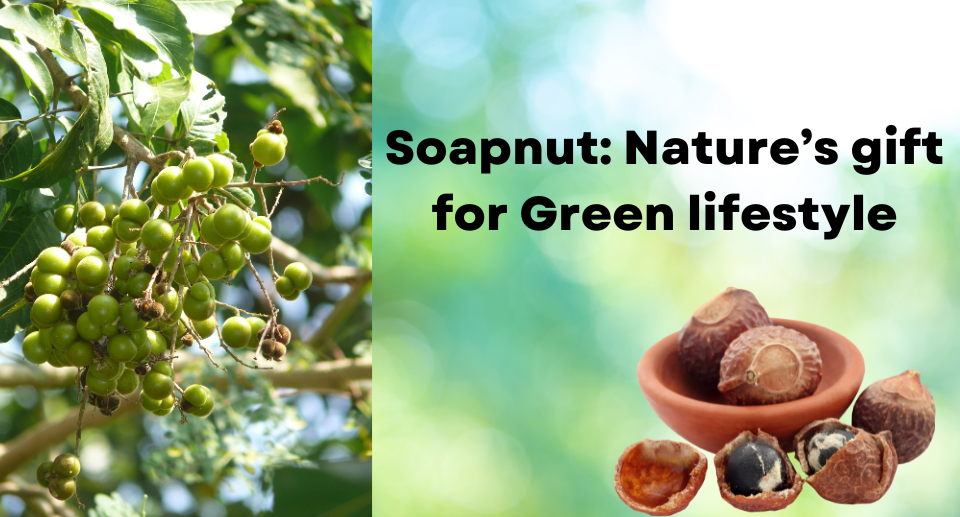Soapnut: Nature’s gift for Green lifestyle

Imagine the world before the arrival of synthetic detergents, In India people relied on natural surfactants such as soapnut (also known as reetha) and shikakai to clean their hair, body, utensils, and clothes. That is the reason Soapnut are called as Soap of India. These natural options were deeply ingrained in the culture and offered effective cleaning solutions without the need for harsh chemicals. Soapnut, in particular, were treasured for their ability to create a gentle, sudsy lather when mixed with water, making them an excellent choice for washing a variety of surfaces.
Safe on skin, Kind to environment
One of the potential benefits of soapnut is its safety and gentleness on the skin. Unlike many synthetic detergents that can cause irritation and dryness, soapnut is naturally mild and ideal for sensitive skin. Its natural properties extend beyond personal care: using soapnuts reduces the burden on the environment as they are biodegradable and come from a sustainable source. By choosing soapnut-based products, you are making an eco-friendly choice that supports a healthier planet.
Soapnut Cultivation-Additional Income to farmers
There are different species of Soapnut, In India Sapindus Mukorossi is widely cultivated. The cultivation of soapnuts not only preserves traditional cleaning methods but also provides additional income to farmers. The soapnut tree is easy to grow and requires minimal maintenance, offering farmers an opportunity to diversify their crops and boost their livelihoods. By supporting soapnut cultivation, we can encourage sustainable agriculture and empower local communities. If you have farm land, think of growing Soapnut tree along the borders. This crop has got bright future, at present farmers are getting 50 to 60 rupees per kg of soapnut, the buying price is increasing year by year.
To know more about Soapnut cultivation watch this video Cultivation of Soapnut and Shikakai in Agro-Forestry systems – YouTube
The Science Behind It
Soapnut are rich in saponin, a natural compound responsible for their cleaning properties. Saponins act as surfactants, which means they can break down and remove dirt and oils from surfaces, making them an effective and natural cleaning agent. When soapnut come into contact with water, they release saponins, which create a gentle, soapy lather that binds to dirt and oil, allowing them to be washed away easily. This natural process makes soapnuts a safe, non-toxic alternative to synthetic cleaning agents, making them an excellent choice for both personal care and household cleaning.
Innovations in Soapnut-Based Products
Companies like BRICS LLP (www.bricsbio.com) have recognized the importance of soapnut and developed home and personal care product ranges that use soapnut as a major ingredient. These products include shampoos, body washes, and laundry detergents that leverage the natural cleaning power of soapnut. Another company, The Indi Mums Buy Natural Handmade Baby Care Products Online | The Indi Mums has introduced a line of baby care cleaning products using soapnut, providing parents with a safe and gentle alternative for their little ones. By incorporating soapnut into modern products, these companies are bridging the gap between traditional knowledge and contemporary needs.





